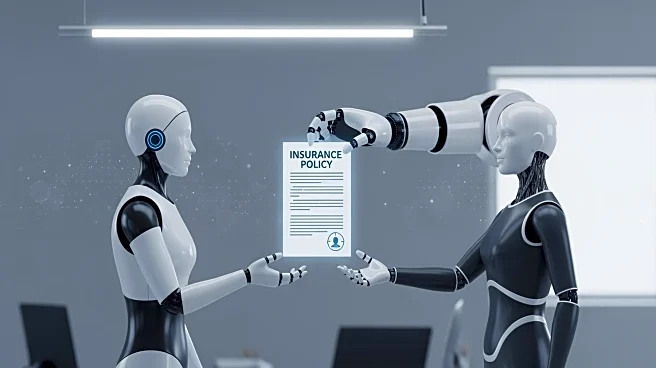What's Happening?
Insurance agencies are increasingly adopting artificial intelligence (AI) to improve efficiency and client interactions. Ryan Hanley, president of Linqura AI, emphasizes the transformative potential of AI, stating that agencies embracing these technologies
will outpace those slower to adopt. AI tools like Sonnet AI are being used to handle tasks such as answering calls and collecting information with high accuracy, fundamentally changing agency operations. Kasey Connors from the Big 'I's Agents Council for Technology notes that agencies are exploring AI for operational efficiencies, policy comparisons, and marketing integration. Relation Insurance Services has developed RelationGPT, a secure AI tool for document comparison and internal process improvement.
Why It's Important?
The integration of AI in insurance agencies is significant as it promises to enhance operational efficiency, reduce human error, and improve client interactions. This shift could lead to faster onboarding, increased close rates, and consistent communication, benefiting both agencies and clients. The adoption of AI tools is expected to reshape the industry, with early adopters gaining a competitive edge. However, it also raises questions about the future role of human agents and the balance between automation and personal relationships in client service.
What's Next?
The future of AI in insurance agencies may involve fully autonomous AI agents capable of handling advisory, sales, and customer service tasks. SuperAgent AI is working towards this goal, although regulatory hurdles remain. The company aims to have AI agents licensed across all states, potentially transforming the industry. As AI tools continue to evolve, agencies will need to navigate integration challenges and regulatory requirements while ensuring client data security and maintaining the human element in client relationships.
Beyond the Headlines
The rise of AI in insurance agencies could lead to ethical and regulatory challenges, particularly concerning data privacy and the potential for AI-driven errors. As AI systems become more autonomous, agencies must address the implications of reduced human oversight and the potential impact on employment within the industry. The shift towards AI-driven operations may also influence cultural perceptions of insurance services, as clients adapt to interacting with AI rather than human agents.














